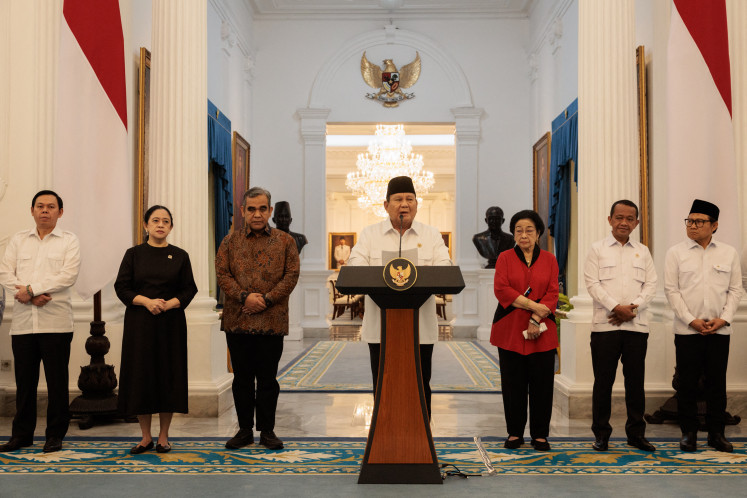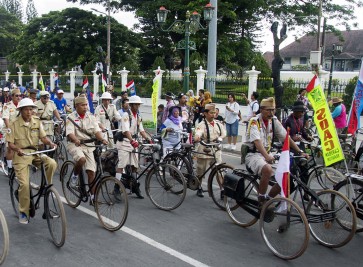Popular Reads
Top Results
Can't find what you're looking for?
View all search resultsPopular Reads
Top Results
Can't find what you're looking for?
View all search resultsHow postcolonial is postcolonial Indonesia?
While the notions of postcolonialism vary and should be understood as attempts to resonate hybrid freedom, we should criticize the continuity of the “inferiority complex” derived from the European colonial legacy in the Indonesian postcolonial scene.
Change text size
Gift Premium Articles
to Anyone
W
hy should we still talk about postcolonialism in this increasingly multipolar and interconnected world and in this industrial revolution 4.0? What is its significance for 74-year-old Indonesia’s postcolonial society? Should we continue to orient the idea of a global history around one single rubric of European perspective by taking colonialism as the determining watershed?
While the notions of postcolonialism vary and should be understood as attempts to resonate hybrid freedom, we should criticize the continuity of the “inferiority complex” derived from the European colonial legacy in the Indonesian postcolonial scene.
As seen in colonialism, most European countries expressed deep racism socially as well as intellectually in order to foster Eurocentric ideas and colonial cultures.
So, it was only recently that a Jakarta-based scholar shared his personal experience when he was a PhD student in France some time ago. What troubles and concerns me is the way he introduced himself as coming from a “third world” country to his European colleagues.
For many, his way is common. There might be nothing problematic in his expression as this may be simply seen in terms of cultural communication or “politeness”, especially since he is there all alone in a foreign country. Anyone from any nationality who shared a colonial past may also introduce themselves this way.
The very reason why this story deserves special mention is that it was expressed by a member of the Indonesian intellectual elite who was supposed to have been aware of unjust power relations and the politics of representation. By accepting the concept of “third world”, he agrees and reinforces the idea that Western countries are solely responsible for knowledge production. Besides, the term third world is outdated as to describe the state of the bipolar moment back during the Cold War era.
The categorization of first, second and third worlds was coined by a French anthropologist, historian and demographer, Alfred Sauvy, in the early 1950s in his book L’Observateur to refer to countries unaligned with either the democratic United States (first world) or the communist Union of Soviet Socialist Republics (second world) during the Cold War. These terms gained international acceptance and became commonplace.


















